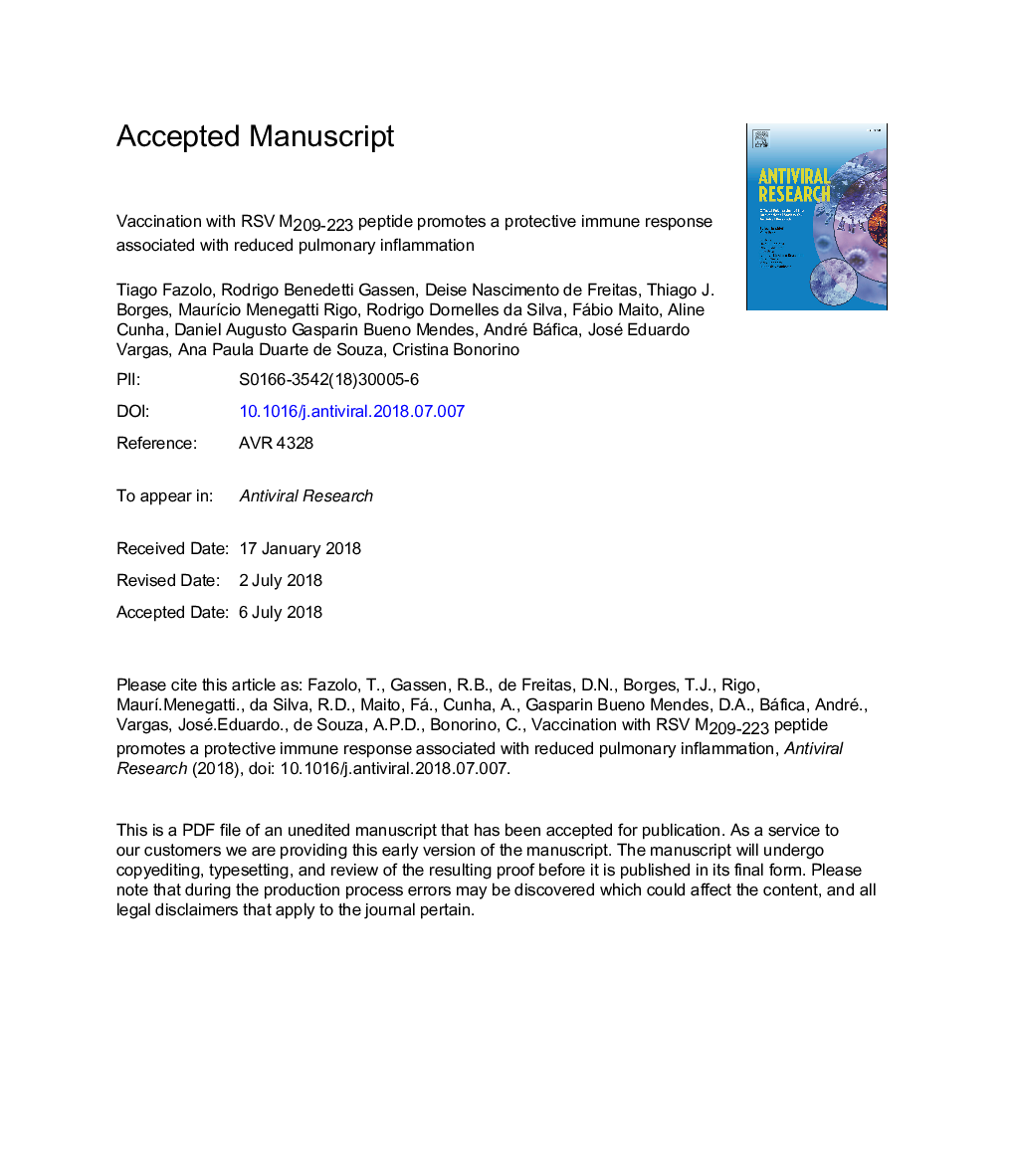| Article ID | Journal | Published Year | Pages | File Type |
|---|---|---|---|---|
| 8523015 | Antiviral Research | 2018 | 45 Pages |
Abstract
Respiratory syncytial virus (RSV) is the most common etiologic agent in severe infections of the lower respiratory tract in children with a high mortality rate. However, there are still no licensed vaccines for RSV. In this study, we investigated a putative vaccine based on M209-223 peptide. Mice vaccinated with M209-223 peptide expanded M209-223-specific effector CD4+ T cells upon infection. Vaccination resulted in increased numbers of regulatory T cells (Treg) and Th1 cells, and decreased numbers of Th2 cells. In addition, vaccination with M209-223 peptide, protected mice from infection and prevented lung inflammation, leading to increase in IL-10 and IFN-γ production by lung CD4+ T cells. Treg depletion with anti-CTLA4 antibodies abrogated protection induced by peptide vaccination. Our results support vaccination with M209-223 peptide as an important strategy to generate protection, both systemic and local, by memory RSV-specific CD4+ T cells in mice. Contrarily to inactivated RSV particles, M209-223 peptide vaccination is capable of not only promoting viral clearance, but also reducing inflammatory processes in lungs upon infection.
Related Topics
Life Sciences
Immunology and Microbiology
Virology
Authors
Tiago Fazolo, Rodrigo Benedetti Gassen, Deise Nascimento de Freitas, Thiago J. Borges, MaurÃcio Menegatti Rigo, Rodrigo Dornelles da Silva, Fábio Maito, Aline Cunha, Daniel Augusto Gasparin Bueno Mendes, André Báfica, José Eduardo Vargas,
